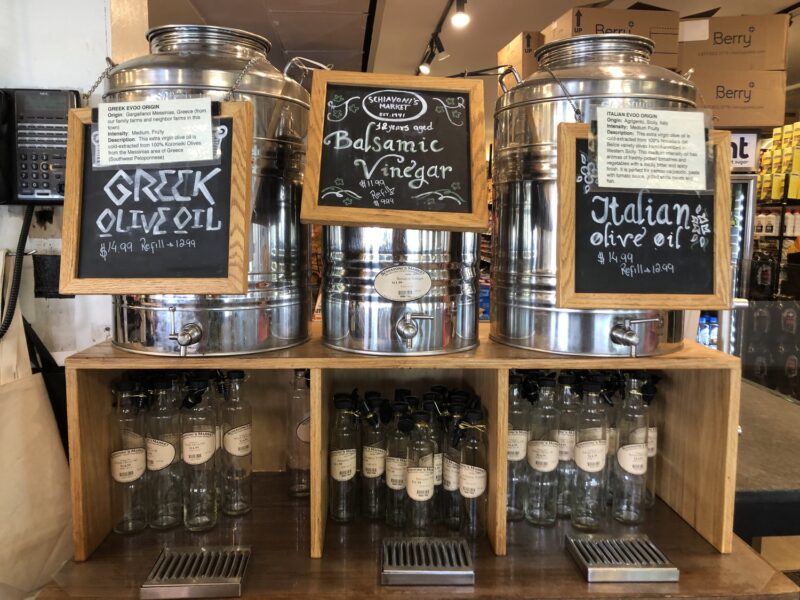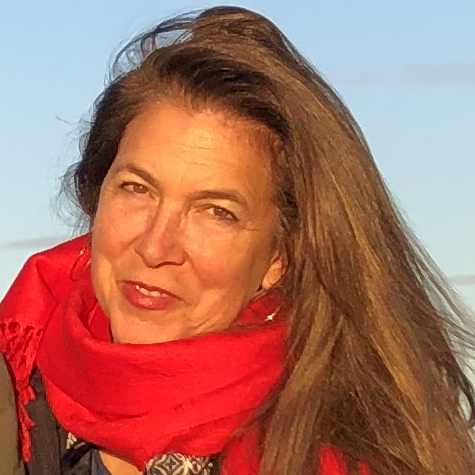

“Water and air, the two essential fluids on which all life depends, have become global garbage cans.” — Jacques Cousteau, 1997
Everybody litters. That’s you and me and our so called recycling center. Living in the bucolic splendor of the Hamptons, it’s easy to think we’re not those people — the ones who toss food containers out car windows and mistake the beach for an ashtray. When we throw plastic “away,” even in the recycling bin, there actually is no away. It just goes somewhere else and becomes somebody else’s problem.
Only 6 percent of all the plastic waste ever created has been recycled. The rest is incinerated into the air we breathe, buried in landfills and dumped off ocean barges, where it’s literally trashing the ocean. From the Great Pacific Garbage Patch to the summit of Mount Everest to corals in the Great Barrier Reef, plastic is everywhere. It can be found in the tummies of sea birds, commercially harvested fish, local osprey nests, and even in the human bloodstream.
In the last decade, people have produced more plastic than they did during the whole of the last century. The average person (and we’re not average) creates 83 pounds of plastic trash every year. Scientists predict that if current trends continue, single use plastic will outweigh all the fish in the ocean by 2050.
This tsunami of plastic waste will be with us for a while. Estimates range from 450 to 1,000 years. In other words, for eternity.
Plastic doesn’t actually break down. It just breaks apart, into tiny granules about the size of a dewdrop, what surfers call “mermaid tears.” These insidious little micro-plastics end up everywhere. They mix into beach sand, blow in the wind and create “ocean smog.” They can be found in drinking water, table salt, sugar, honey and even beer.
How much micro-plastic do we humans consume? A new study commissioned by the World Wildlife Fund suggests we’re ingesting about 2,000 tiny pieces of plastic every week, an amount equal to about the weight of a credit card. Inside us, the chemicals from these micro-plastics enter our bloodstream, contributing to a range of health issues, including hormonal imbalance, cardiovascular disease, weight gain, depression, infertility and even cancer.
Like most people trying to do the right thing, I’ve spent years under the delusion that by recycling, I could make a dent in the problem. Even if our trash is being recycled, and that’s a big “if,” the environmental impact starts long before we’re fretting about which bin to put something in or trying to decipher the mind-boggling numeric designations. The issue is that this petrochemical material is a major contributor to climate change. It emits greenhouse gases when its being produced, shipped across the world, and then again as it degrades in landfills.
And then with the paltry 6 percent that does get recycled, the process of carting the recyclables, melting them down, separating and then turning them into something new, uses a lot of fossil fuel, making the cure almost worse than the problem.
The only way to fight plastic pollution is to use less in the first place.
Start by reusing the containers you already have with a trip to a refillery. Having been popular in Europe for years, refilleries are finally catching on at places like Eastport General Store in Hampton Bays. Despite the folksy name, it’s less general store and more a sort of candy land of mood boosting aromas. Sure, they sell things like organic milk and recycled toilet paper, but you go for the olfactory pleasure of high quality botanical cleaners and beauty products.
Most of their bath, body and cleaning products are infused with a blend from one of 27 different essential oils, such as lavender, eucalyptus or my favorite, frankincense. The most popular aromatic blend for body and bath is “Peace,” infused with lavender, patchouli and geranium. For cleaning products, people love “Garden,” a blend of rosemary, peppermint, black pepper and fennel. You can also mix and match your own creations.
Most everything is made in-house and all of the ingredients are “food grade” (the lovely rose water is good enough to drink). Herbs such as chamomile, calendula, rosemary, lavender and basil are grown locally in Eastport.
The variety of glass containers to help you get started are much prettier than my Tide laundry and Prell shampoo bottles, but repurposing my old containers saves money and keeps my empty plastic bottles out of the trash. As an organizationally challenged person, I found that gradually collecting several old bottles and putting them in one big box in my car made it easy to fill them all up in one trip, rather than running back to the refillery every time I needed something.
With groceries, avoid plastic waste from packaging and save money by shopping from bulk bins. Provisions Natural Foods in Sag Harbor offers bins and dispensers filled with a huge variety of beans, grains, nuts and dried fruit. Sample an assortment of treats like chocolate covered almonds and cocoa goji chunks. Just as with a refillery, bring in any clean, reused plastic bag, bottle or can.
The trick to grocery shopping from bins is to embrace substitutes. The other day, a friend asked, “What do you do when you want white quinoa which only comes in a plastic container?” (These are the challenges we face!) I substitute it with the nuttier red quinoa from the bin. If you like dried cranberries but they’re packaged, experiment with dried apricots. If you normally use walnuts in a salad, try pecans from the bin instead. Serious cooks know that substituting doesn’t ruin a recipe, just changes it.
It’s impossible to give up plastic cold turkey. I see these shows about people who try to abstain from plastic for an entire week and think, “Really? What a nightmare!” It never ends well.
Over the past year, I’m guessing I’ve eliminated about half my plastic trash. It was a gradual process where I’d look at plastic items as I’d toss them and wonder if there was a better way to do it. Case in point: My son’s very large collection of small Gatorade bottles. I just bought him powdered Gatorade to save us money as well as minimize the detritus of bottles tossed willy nilly throughout the house. We’ll see how that goes.
Laura Mancuso, author of “The Fin-Tastic Clean Up,” and regular at Eastport General Store, compares reducing plastic waste to losing weight. “You don’t say, ‘I’m going to lose 50 pounds.’ You do it one pound at a time!”
A report from the World Economic Forum put it another way. They estimate that if just 10 to 20 percent of plastic packaging were reused, the amount of plastic waste entering the ocean could be cut in half.
Scoop by scoop, and squirt by refillable squirt, it’s all a step in the right direction.
 More Posts from Jenny Noble
More Posts from Jenny Noble